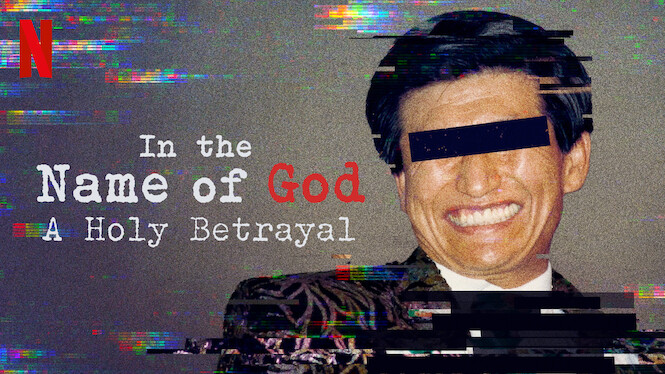Netflix Defeated The Courts In Order To Show Documentary About Religious Sex Cult
Netflix defeated an injunction against In the Name of God: A Holy Betrayal that tried to stop the documentary from airing.

True Crime and exposé content like Monster: The Jeffrey Dahmer Story and The Hatchet Wielding Hitchhiker are at the peak of their popularity, and Netflix is here to ensure that this content gets seen by those who crave it, even if it means going to court and defeating those who are opposed. According to Variety, that is precisely what the streaming platform had to do for In the Name of God: A Holy Betrayal, an exposé documentary about a religious Korean sex cult.
In the Name of God: A Holy Betrayal is the unsettling documentary of four Korean leaders who claim to be prophets. Netflix and MBC, the Korean broadcasting company that produced the series, use the documentary to explore the dark side of unconditional faith.
The eight-part Netflix Original Series began airing on March 3 and immediately faced an injunction calling for the show to be taken down. Because the show is a Netflix Original, the streaming platform has the right to air the documentary in any country, including in Korea, where the prophets live.
In the series, Netflix shines a light on the religious community of Christian Gospel Mission, which also goes by the names Providence and Jesus Morning Star, aka JMS. Whether on purpose or coincidentally, JMS shares initials with its problematic leader, Jeong Myeong-seok, who is currently awaiting trial for the sexual assault of several of his female followers.

It was the JMS organization that sought an injunction to cease the docuseries from airing. The organization claimed that the events displayed in the Netflix series were fictional, violated the presumption of innocence since Jeong is still awaiting trial, and undermined religious freedom. However, despite JMS’s claims, the Seoul Western District Court sorted through the content that the streaming platform and MBC had created and judged that the series had been made based on a significant amount of both subjective and objective material, meaning that the injunction was invalid.
The first episode of A Holy Betrayal gets right into it. The first episode of the Netflix Original Series opens with a post-coital scene that is unclear whether the footage is real or a re-enactment. The man in the scene praises a woman on her broad hips and asks her about her orgasm before bragging about his own experience. While the scene plays out, the documentary gets the audience emotionally invested by cutting the post-coital scene with an interview of a woman describing the multiple sexual assaults she faced at the hands of Jeong.
The Netflix documentary then continues with other footage of Jeong as he graphically describes the biblical story of Adam and Eve, calls himself God, and gets into a tub full of naked women who call him their “Lord.” After reviewing the footage, the court claimed that the JMS group had not provided enough of their own material to prove that the claims in the documentary weren’t true.
In addition to the footage acquired by Netflix, Jeong’s history is against him. The man has previously served a decade in prison after raping three women and is currently awaiting trial for the “quasi-rape” of two women, meaning that Jeong allegedly took advantage of the women while they were unconscious. If convicted, he will face a minimum of three years in prison.












